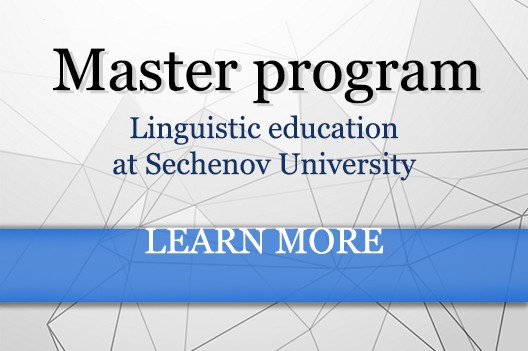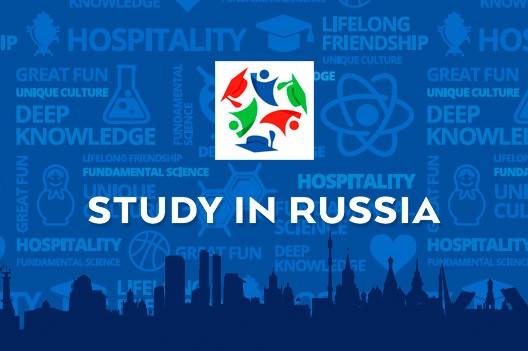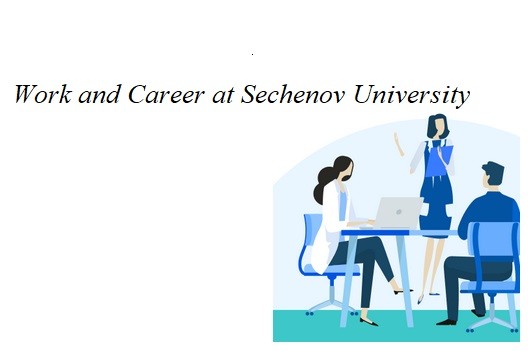Абитуриенту
- Абитуриенту
-
Обучающемуся
- Я – профессионал
- Локальные нормативные акты
- Образовательные программы
- Стоимость обучения
- Университет - обучающемуся
- Центр карьеры
- Учебный центр по маркировке
- Учеба и наука
- Школы мастерства
- Комфортная среда обучения
- Образовательные стандарты
- Стипендии и материальная поддержка
- Вакантные места
- Общежития
- Сотруднику
- Аккредитация специалистов
-
About University
- Mission & Brand Strategy
- University Leadership
- Rector's Welcome
- History
- Regulatory Documents
- Contacts
- Staff
- International Recruitment
- Partners
Applicants- Why Sechenov University
- Degree Programmes in English
- Preparatory Courses
- Non-Degree Programmes
- Transfer from other Institutions
07.05.2020Russian and Chinese healthcare leaders discuss coronavirus pandemic
 On 30 April, the Permanent Council of Sino-Russian Medical Universities Association (ASRMU) held a video conference meeting dedicated to organisational approaches and clinical solutions in the fight against COVID-19 global outbreak.
On 30 April, the Permanent Council of Sino-Russian Medical Universities Association (ASRMU) held a video conference meeting dedicated to organisational approaches and clinical solutions in the fight against COVID-19 global outbreak.
As for April 2020, according to the WHO report, the main challenges of the new COVID-19 coronavirus infection are speed, scale, explosive nature and deep social and economic impacts of the virus, as well as a high degree of severity – overall 20% of cases are severe or critical, with a crude comorbidities.
Russian and Chinese experts in healthcare addressed the ways to provide an adequate care to patients, develop a treatment strategy, and transform University Hospitals to meet the global challenges in fighting the pandemic.
Opening the conference, Professor Petr Glybochko, Sechenov University Rector and co-Chairman of ASRMU from the Russian side, yield the floor to Oleg Gridnev, Russian Deputy Minister of Health. The Deputy Minister noted that: "The ASRMU meeting is more relevant than ever: scientists and physicians share their experience in transforming health systems to the conditions of a new coronavirus infection."
According to the Deputy Minister, “Russia mobilizes resources of leading Federal centres to fight COVID-19 by providing more than 100,000 hospital beds for coronavirus patients. Sechenov University was among the first to reorganise 2,000 beds. The University has launched a Federal remote consultation center for anaesthesiology and resuscitation for adults, providing support to the regions twenty-four seven". The Deputy Minister is convinced that with the support of the Ministry of Health of Russia and unique experience of Sechenov University, such centres will be established in all regions of the country.
Participants and guests of the conference were welcomed by Professor Zhang Xue, Rector of Harbin Medical University, who expressed confidence that collaboration is the key to success in the fight against the pandemic, which is essentially "a war in which we are all soldiers".
Dmitry Morozov, Chairman of the Committee on Health Protection, noted that cooperation is a good old tradition of medical universities in Russia and China. "Our Chinese colleagues were the first to gain experience in fighting the pandemic. Today, Russia is increasing its efforts and it is very important that there is a great friendship between our nations, our peoples and medical universities." Dmitry Morozov also said that in recent days the state Duma of the Russian Federation has adopted a number of necessary legal regulations to combat COVID-19.
Professor Yang Baofeng, academician of the Chinese Academy of Engineering, co-Chairman of the ASRMU from the Chinese side delivered the report on "Prevention and treatment strategies of COVID-19 in China”. Professor Baofeng outlined the Chinese government’s attempts to ensure social support and vaccine development to prevent further spread of the epidemic. In addition, a research group led by Professor Baofeng is conducting a study on the effective use of traditional Chinese medicine in fight against pandemic, Convalescent plasma and COVID-19 therapy, prevention and treatment drugs of COVID-19 patients.
Professor Liu Liang, Rector of the Macao University of Science and Technology, drew the attention to scientific ground of use of traditional Chinese medicine (TCM) in treatment of new coronavirus infection. Various methods of psychophysiological practices, dietetics, and other tools of traditional Chinese medicine, according to the Professor, can be useful in prevention and treatment of certain forms of COVID-19.
Jiang Baoguo, Director, Peking University People’s Hospital, presented the survival rate analysis of COVID-19 patients with comorbidities.
Representatives of the First Affiliated Hospital of Harbin Medical University presented a model of centralised hospital management for patients with a new coronavirus infection, focusing on patient routing and staffing support.
Professor Viktor Fomin, Vice-Rector for Clinical Activities at Sechenov University in his report “University clinical hospital in Coronavirus (COVID-19) era: transformation strategy” outlined that "Universities are the main resource for analyzing and developing the effective ways of patient treatment, and clinical research," Professor Fomin also presented the 5 step strategy proposed by the Rector of Sechenov University.
Professor Sergey Avdeev, Head of the Department of Pulmonology at Sechenov University noted that "There is no specific antiviral treatment approved for COVID-19, nor are there any vaccines. The current treatment of a new coronavirus infection involves supportive therapy, supplemental oxygen or mechanical ventilation, and anticoagulant therapy.”
Professor Andrey Yavorovsky, Head of Anesthesiology and Resuscitation Department at Sechenov University, shared his experience in managing patients with COVID-19 in the intensive care unit. Professor Yavorovsky noted the respiratory support tactics are determined by stratification, i.e. patient severity assessment. At the same time the speed of decision-making is very important – the progression of respiratory failure can occur rapidly, early anticoagulation therapy for the prevention and treatment of microvascular thrombosis syndrome, correction of the systemic inflammatory response of the body (cytokine storm). It is important to provide competent respiratory support: each stage of ARDS – acute respiratory distress syndrome- requires "its own ventilation".
In conclusion, Professor Petr Glybochko noted: "Only by working together can we overcome the pandemic. Confidence and solidarity of countries and peoples, health systems, and medical universities around the world is the only way to address this crisis. The analytical reports of scientists and medical experts from Russia and China presented at the conference are a manifestation of solidarity that contributes to building the capacity needed to monitor the progress of the pandemic."Embed on website
Russian and Chinese healthcare leaders discuss coronavirus pandemic
On 30 April, the Permanent Council of Sino-Russian Medical Universities Association (ASRMU) held a video conference meeting dedicated to organisational approaches and clinical solutions in the fight against COVID-19 global outbreak.
As for April 2020, according to the WHO report, the main challenges of the new COVID-19 coronavirus infection are speed, scale, explosive nature and deep social and economic impacts of the virus, as well as a high degree of severity – overall 20% of cases are severe or critical, with a crude comorbidities.
Russian and Chinese experts in healthcare addressed the ways to provide an adequate care to patients, develop a treatment strategy, and transform University Hospitals to meet the global challenges in fighting the pandemic.
Opening the conference, Professor Petr Glybochko, Sechenov University Rector and co-Chairman of ASRMU from the Russian side, yield the floor to Oleg Gridnev, Russian Deputy Minister of Health. The Deputy Minister noted that: "The ASRMU meeting is more relevant than ever: scientists and physicians share their experience in transforming health systems to the conditions of a new coronavirus infection."
According to the Deputy Minister, “Russia mobilizes resources of leading Federal centres to fight COVID-19 by providing more than 100,000 hospital beds for coronavirus patients. Sechenov University was among the first to reorganise 2,000 beds. The University has launched a Federal remote consultation center for anaesthesiology and resuscitation for adults, providing support to the regions twenty-four seven". The Deputy Minister is convinced that with the support of the Ministry of Health of Russia and unique experience of Sechenov University, such centres will be established in all regions of the country.
Participants and guests of the conference were welcomed by Professor Zhang Xue, Rector of Harbin Medical University, who expressed confidence that collaboration is the key to success in the fight against the pandemic, which is essentially "a war in which we are all soldiers".
Dmitry Morozov, Chairman of the Committee on Health Protection, noted that cooperation is a good old tradition of medical universities in Russia and China. "Our Chinese colleagues were the first to gain experience in fighting the pandemic. Today, Russia is increasing its efforts and it is very important that there is a great friendship between our nations, our peoples and medical universities." Dmitry Morozov also said that in recent days the state Duma of the Russian Federation has adopted a number of necessary legal regulations to combat COVID-19.
Professor Yang Baofeng, academician of the Chinese Academy of Engineering, co-Chairman of the ASRMU from the Chinese side delivered the report on "Prevention and treatment strategies of COVID-19 in China”. Professor Baofeng outlined the Chinese government’s attempts to ensure social support and vaccine development to prevent further spread of the epidemic. In addition, a research group led by Professor Baofeng is conducting a study on the effective use of traditional Chinese medicine in fight against pandemic, Convalescent plasma and COVID-19 therapy, prevention and treatment drugs of COVID-19 patients.
Professor Liu Liang, Rector of the Macao University of Science and Technology, drew the attention to scientific ground of use of traditional Chinese medicine (TCM) in treatment of new coronavirus infection. Various methods of psychophysiological practices, dietetics, and other tools of traditional Chinese medicine, according to the Professor, can be useful in prevention and treatment of certain forms of COVID-19.
Jiang Baoguo, Director, Peking University People’s Hospital, presented the survival rate analysis of COVID-19 patients with comorbidities.
Representatives of the First Affiliated Hospital of Harbin Medical University presented a model of centralised hospital management for patients with a new coronavirus infection, focusing on patient routing and staffing support.
Professor Viktor Fomin, Vice-Rector for Clinical Activities at Sechenov University in his report “University clinical hospital in Coronavirus (COVID-19) era: transformation strategy” outlined that "Universities are the main resource for analyzing and developing the effective ways of patient treatment, and clinical research," Professor Fomin also presented the 5 step strategy proposed by the Rector of Sechenov University.
Professor Sergey Avdeev, Head of the Department of Pulmonology at Sechenov University noted that "There is no specific antiviral treatment approved for COVID-19, nor are there any vaccines. The current treatment of a new coronavirus infection involves supportive therapy, supplemental oxygen or mechanical ventilation, and anticoagulant therapy.”
Professor Andrey Yavorovsky, Head of Anesthesiology and Resuscitation Department at Sechenov University, shared his experience in managing patients with COVID-19 in the intensive care unit. Professor Yavorovsky noted the respiratory support tactics are determined by stratification, i.e. patient severity assessment. At the same time the speed of decision-making is very important – the progression of respiratory failure can occur rapidly, early anticoagulation therapy for the prevention and treatment of microvascular thrombosis syndrome, correction of the systemic inflammatory response of the body (cytokine storm). It is important to provide competent respiratory support: each stage of ARDS – acute respiratory distress syndrome- requires "its own ventilation".
In conclusion, Professor Petr Glybochko noted: "Only by working together can we overcome the pandemic. Confidence and solidarity of countries and peoples, health systems, and medical universities around the world is the only way to address this crisis. The analytical reports of scientists and medical experts from Russia and China presented at the conference are a manifestation of solidarity that contributes to building the capacity needed to monitor the progress of the pandemic."



